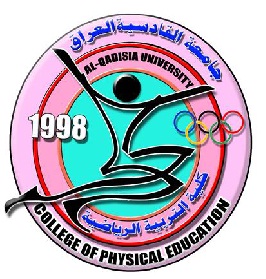Physiology Laboratory in the College of Physical Education and Sports Sciences:
The work of the Sports Physiology Laboratory is determined by conducting research by professors and postgraduate students regarding the physiology of the body’s organs and their relationship to physical effort, which helps researchers obtain great scientific information about the responses to the efforts made by the players, in addition to the amount of physiological and physical adaptation of the athletes when they perform training for long periods with their coaches. In addition to the possibility of diagnosis, which is one of the most important aspects of training and sports work, through the tests conducted on the players, it is possible to rely on the results to determine their strengths and weaknesses, especially since the physiological laboratory includes a number of devices with solid international origins that provide the world’s laboratories with the latest devices. Therefore, The accuracy of the results obtained is very high. Therefore, we call on researchers in various parts of the country to work in the Sports Physiology Laboratory, Al-Qadisiyah University, College of Physical Education and Sports Sciences.
Scientific laboratories aim to:
Improving the scientific aspect of college professors and students through the great scientific information provided by the research unit in light of the presence of modern and advanced equipment from international origins.
Creating scientific conditions to conduct research and raise its scientific level for professors of the College of Physical Education and postgraduate students.
Developing the infrastructure for scientific devices and tools in the disciplines of physiology, biomechanics, sports training science, and other related sciences.
Training a scientific cadre of postgraduate students and some professors.
Preparing some scientific courses and seminars.
Research carried out in scientific laboratories:.
Conducting laboratory tests for the governorate’s breeding teams for men and women for various activities in the physiological laboratory.
Conducting experiments for postgraduate students (Master’s and PhD) in the biomechanical and physiological laboratory of Iraqi universities (Wasit, Al-Muthanna, Kufa, Maysan, Al-Mustansiriya, Karbala, Salah al-Din, Alexandria University – Egypt)
Conducting examinations for national cycling and athletics team players in physiological laboratories.
The completion of research by graduate students and professors in the fields of physiology and biomechanics for more than 50 studies since the establishment of the scientific laboratories.
Instructions
Graduate students wishing to study the physiological aspects of physical exertion and training are expected to spend sufficient time in the laboratory, participating in ongoing faculty research and assisting other fellow graduate students in their research. We therefore urge graduate students to take advantage of the opportunity and spend as much time as possible in the laboratory.
It is important for graduate students to reserve time to conduct their experiments early in the semester, in order to avoid the crowding that usually occurs at the end of the semester. This must be done on the laboratory’s appointment board.
Smoking is absolutely not permitted inside the laboratory or near its entrance.
In order to maintain the cleanliness of the laboratory and the safety of its equipment, it is forbidden to eat or drink inside
lab.
Safety and hygiene procedures in the laboratory
First: Safety Measures:
It is prohibited for an individual to engage in violent physical effort in an experiment that requires maximum or close to maximum physical effort without ensuring the health condition of the subject and that he is free of any chronic disease, especially in the cardiac circulatory system.
It is recommended not to participate in experiments if the individual has a high temperature, or if there is a sore throat or respiratory system, or if there is a muscle tear or joint injury, for the safety of the subject first, and then because of the opportunity to obtain correct data in those cases. be weak.
The subject must not be left alone on the device while performing laboratory measurements and experiments in the laboratory. Rather, he must be directly supervised and monitored at all times.
In the event of an experiment that requires physical effort, it is necessary to ensure that the subject has performed the necessary warm-up procedures, and the subject must also be given sufficient time in which to gradually recover from the effort.
In the event of a fire occurring in the laboratory (God forbid), it is necessary to extinguish it immediately using the fire extinguisher present in the laboratory, then notify the laboratory supervisor immediately, and also call the Security and Safety Department on the number shown in the room inside the laboratory.
Second: Hygiene and sterilization:
General Terms:
Sterile, clean parts and consumables should always be used when performing any physiological procedures used in the laboratory.
When using single-use items (such as mouthpieces used to measure respiratory functions, or ECG sensors), they must be disposed of immediately after a single use.
When touching used tools or after performing any laboratory measurement on the subject, hands must always be washed with medical soap.
Tubes containing blood samples, including capillary tubes and needles, must be disposed of by placing them in a special box located in the laboratory and designated for contaminated materials, while avoiding throwing them in the regular trash. These materials should be disposed of later by burning.
It is necessary to clean and sterilize the surfaces of shelves (benches) periodically, by wiping them with alcohol and Dettol solution.
Mouthpieces and valves used in spirometry:
Mouthpieces and plastic (or glass) valves should always be sterilized, clean, and placed in a designated place.
After completing the measurement procedures, gently pull the mouthpiece and plastic valve from the subject and place it in running water for a short period until it gets rid of the saliva stuck in it, then transfer it to the container containing a sterilizing liquid (Dettol or similar), and leave it for 30 minutes. Then wash it with running water again, dry it – up to 20 minutes, and place it in the place of clean and sterilized tools.

لا تعليق